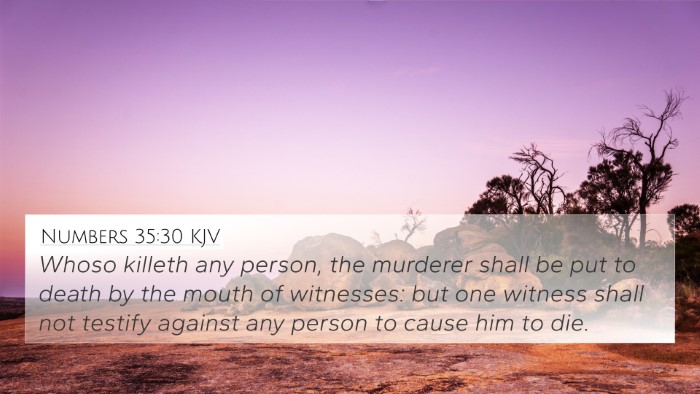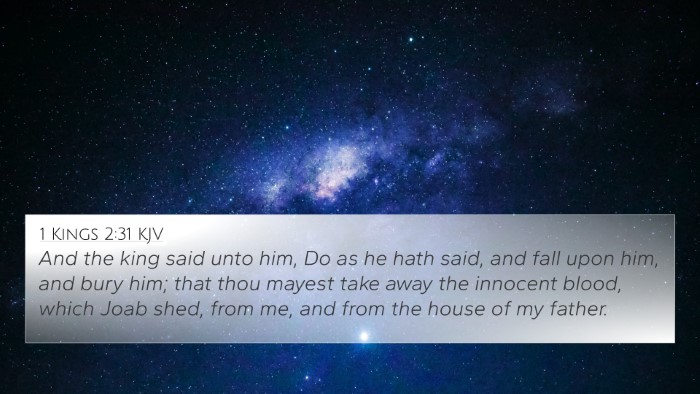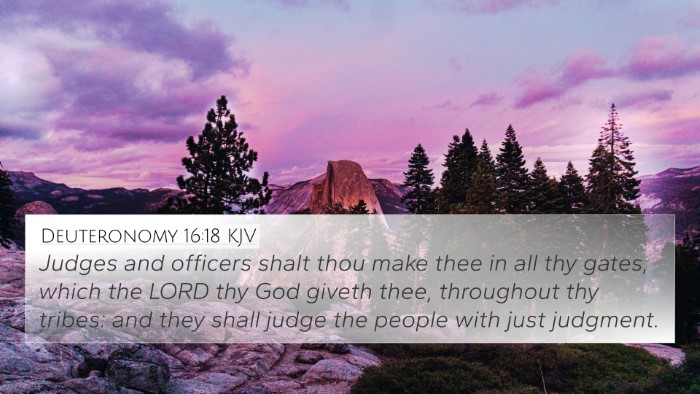Understanding Matthew 5:21
Matthew 5:21 states: "You have heard that it was said to those of old, 'You shall not murder; and whoever murders will be liable to judgment.' This verse is part of Jesus' Sermon on the Mount, where He reinterprets the moral law and emphasizes the deeper implications of God's commandments.
Summary of Meaning
In this verse, Jesus references the Sixth Commandment from the Old Testament. However, His teaching goes beyond the mere act of murder, focusing instead on the spirit of the law. He addresses the underlying attitudes that can lead to such actions, highlighting the importance of not just external compliance but also internal purity.
Commentary Insights
- Matthew Henry: Henry indicates that Jesus asserts the authority of the law while also illuminating its profound significance. He stresses that anger and hatred can be as damaging as the act of murder itself.
- Albert Barnes: Barnes emphasizes the relationship between moral actions and thoughts, where internal emotions like anger can lead to condemnation. He calls attention to the necessity for reconciliation and peace among believers as an extension of this commandment.
- Adam Clarke: Clarke advises on the importance of understanding that the law was given to regulate not only actions but also the heart's intents. He warns that even harboring animosity can lead one to be judged, aligning with Jesus' expanded interpretation of the law.
Cross-References and Related Verses
There are numerous Bible verses that connect with the themes presented in Matthew 5:21. Understanding these connections can enrich one's study of Scripture:
- Exodus 20:13: "You shall not murder." - The foundational commandment Jesus refers to in His teaching.
- 1 John 3:15: "Everyone who hates his brother is a murderer..." - This verse underlines the concept that hatred itself is akin to murder.
- Matthew 5:22: "But I say to you that everyone who is angry with his brother will be liable to judgment..." - This is the immediate continuation of Jesus' thought.
- James 1:20: "For the anger of man does not produce the righteousness of God." - Emphasizes the need for controlling anger to align with God's righteousness.
- Matthew 18:35: "So also my heavenly Father will do to every one of you, if you do not forgive your brother from your heart." - Highlights the importance of forgiveness in relation to anger and conflict.
- Romans 12:19: "Beloved, never avenge yourselves, but leave it to the wrath of God..." - Encourages believers to relinquish personal vengeance, resonating with the theme of reconciliation.
- Galatians 5:19-20: Lists the works of the flesh, including enmity and strife, which directly oppose the command not to murder.
Inter-Biblical Dialogue
Thematic connections can be observed throughout both the Old and New Testaments:
- From the Prophets, where the call for internal righteousness is prevalent, to the Apostolic teaching, which informs believers about the essence of love over mere obedience.
- By cross-referencing Psalms with New Testament teachings, we see a continuity in God's desire for the heart's alignment with His will.
Tools for Bible Cross-Referencing
For those interested in exploring connections further, here are some resources:
- Bible concordance for finding relevant verses.
- Cross-reference Bible study guides to deepen understanding.
- Comprehensive Bible cross-reference materials that allow thematic studies and verse comparisons.
Conclusion
In summary, Matthew 5:21 challenges us to reflect not only on our actions but also on our hearts. Jesus redefines murder in a way that compels us toward humility and reconciliation. By exploring the related verses, we can cultivate a deeper understanding of how our thoughts and emotions interact with God's law.



















